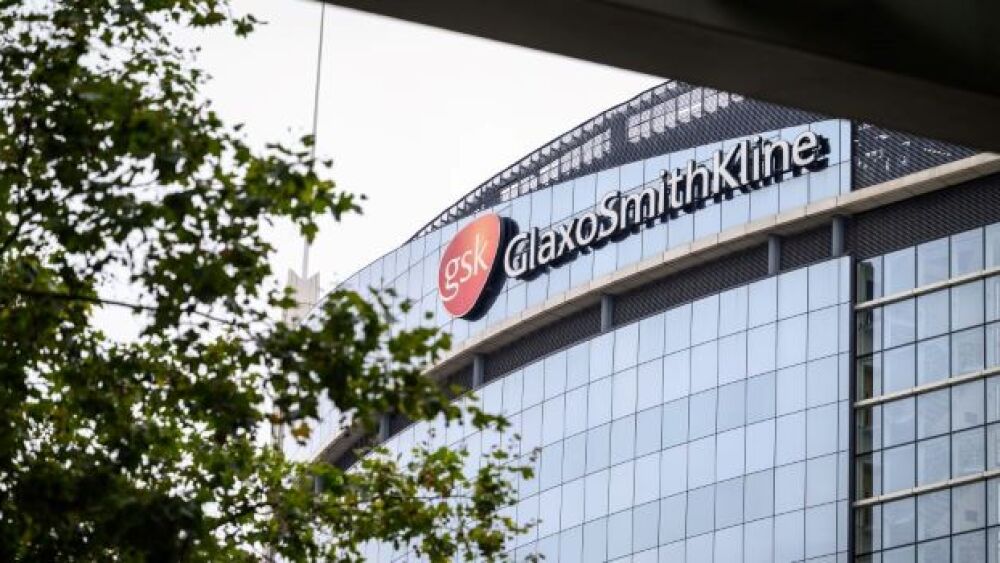The FDA’s Oncologic Drugs Advisory Committee voted 8-5 that two single-arm trials would be “sufficient to characterize the benefits and risks” of Jemperli in locally advanced rectal cancer.
Leon Neal/Getty Images
It was a good Thursday for GSK’s Jemperli (dostarlimab), as the immunotherapy received both full FDA approval in endometrial cancer and the regulatory go-ahead regarding its development plan in rectal cancer.
The FDA’s Oncologic Drugs Advisory Committee (ODAC) met Thursday to discuss whether two single-arm trials would be “sufficient to characterize the benefits and risks” of the drug in patients with mismatch repair-deficient/microsatellite instability-high (dMMR/MSI-H) locally advanced rectal cancer (LARC).
The committee voted 8-5 in the affirmative.
Jemperli is an IgG4 humanized monoclonal antibody blocking the PD-1 receptor. The drug is approved for use in dMMR endometrial cancer and dMMR recurrent or advanced solid tumors.
Also on Thursday, the FDA granted regular approval for Jemperli in endometrial cancer. The full approval was based on long-term outcomes from the Phase I GARNET trial, in which the drug demonstrated a 45.4% overall response rate.
Accelerated approval was originally granted in a similar indication in April 2021.
GSK now hopes to expand Jemperli’s label to include treatment-naïve dMMR LARC. For this, the company proposed two single-arm trials. The first, a single-center study, is set to enroll 30 patients, while the second will recruit 100 patients across several study sites.
In both trials, patients will be treated with 500 mg intravenous Jemperli every three weeks for nine cycles.
Jemperli’s efficacy will primarily be evaluated as the 12-month clinical complete response rate (cCR), a composite of no residual disease by endoscopy or rectal-specific MRI and no evidence of metastatic disease one year after the first cCR evaluation.
GSK plans to use cCR results as the clinical endpoint to support a supplemental Biologics License Application for Jemperli’s accelerated approval in this indication.
To verify the clinical benefit of Jemperli in this patient population, the company also plans to evaluate cCR and event-free survival after three years of follow-up. GSK also proposes to include a randomized controlled trial comparing Jemperli against the standard of care in Stage II/III dMMR colon cancer as supportive confirmatory evidence.
FDA Red Flags
Jemperli lit up the oncology space in June 2022 when it elicited a 100% cCR in a small study of 14 rectal cancer patients.
With 12 patients completing treatment, Alan P. Venook, M.D., colorectal cancer physician, University of California, San Francisco, called the study “unheard-of.”
The FDA appeared to be skeptical, however.
In its briefing documents published before the ODAC meeting, the regulatory body flagged “the unprecedented use of cCR as the major endpoint to support an approval in oncology.”
In particular, the agency pointed out that there are currently no evidence-based guidelines to support the use of cCR as an efficacy metric in clinical practice or clinical trials.
“The use of cCR in LARC clinical decision-making is based on small, mostly retrospective, uncontrolled studies that vary in design” and other factors such as treatment regimen and monitoring protocol, the FDA wrote.
The FDA granted Jemperli Fast Track designation in dMMR/MSI-H LARC in January.






